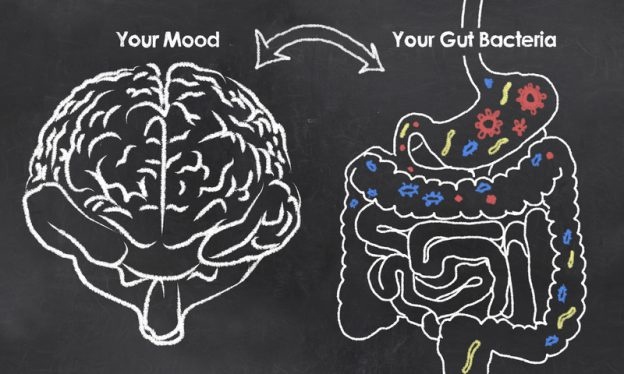Researchers have long known that the bacteria living in your gut can “talk” to your brain. Gut microbes, which collectively make up what’s called the gut microbiome, can have a significant impact on mood and cognition and a troubled intestine can send signals to the brain, just as a troubled brain can send signals to the gut. Therefore, a person’s stomach or intestinal distress can be the cause or the product of anxiety, stress, or depression. That’s because the brain and the gastrointestinal (GI) system are intimately connected.
The gut is home to the enteric nervous system. Separate from the central nervous system, the ENS is made up of two thin layers with more than 100 million nerve cells in them — more than the spinal cord. These cells line the gastrointestinal tract, controlling blood flow and secretions to help the GI tract digest food. They also help us “feel” what’s happening inside the gut and controls behavior on its own. Researchers believe this came about to make digestion more efficient in the body; instead of having to “direct” digestion through the spinal cord and into the brain and back, we developed an on-site brain that could handle things closer to the source.
Stress is intimately tied to our guts. Our bodies respond to stress with a “fight or flight system,” related to our cortisol levels. If we are in a constant state of stress, it causes inflammation. Given how closely the gut and brain interact, it becomes easier to understand why you might feel nauseated before giving a presentation, or feel intestinal pain during times of stress. There may be an answer – adding probiotics to our supplemental regiment. Because our microbes can signal to our brains and modulate emotions, bad bacteria can cause your mental health to become imbalanced.
Live microbes or probiotics can have a positive effect. “These bacteria are capable of producing and delivering neuroactive substances . . . which act on the brain–gut axis,” wrote Timothy Dinan, MD, a professor of psychiatry at University College Cork in Ireland. “Evidence is emerging of benefits in alleviating symptoms of depression and in chronic fatigue syndrome, may have anti-inflammatory actions.”
Another study illustrated how the gut and brain are connected through studying the effects of probiotics on patients with irritable bowel syndrome and depression. Researchers found that twice as many patients saw improvements from depression when they took a probiotic as compared to the other patients who took a placebo. Common probiotics can be found in foods such as yogurt, kombucha, keifer and sauerkraut. You can also find a variety of probiotics in supplement form at health food stores. With an improvement of the gut, came an improvement of mental well-being and balance of the system overall.

